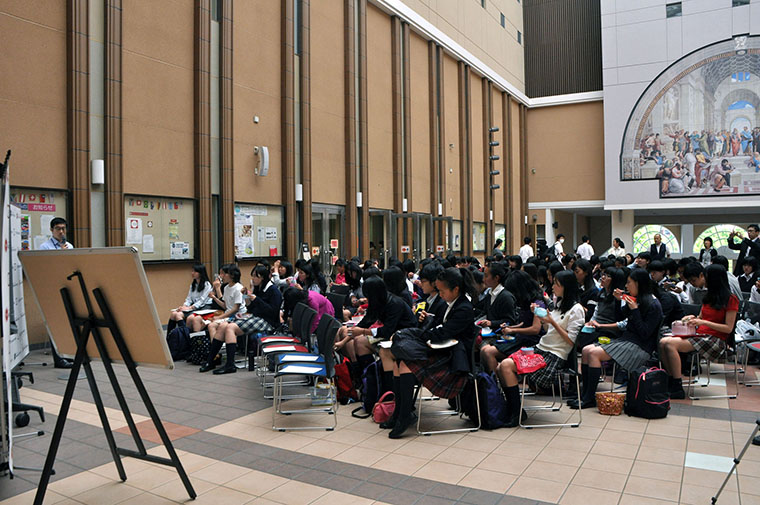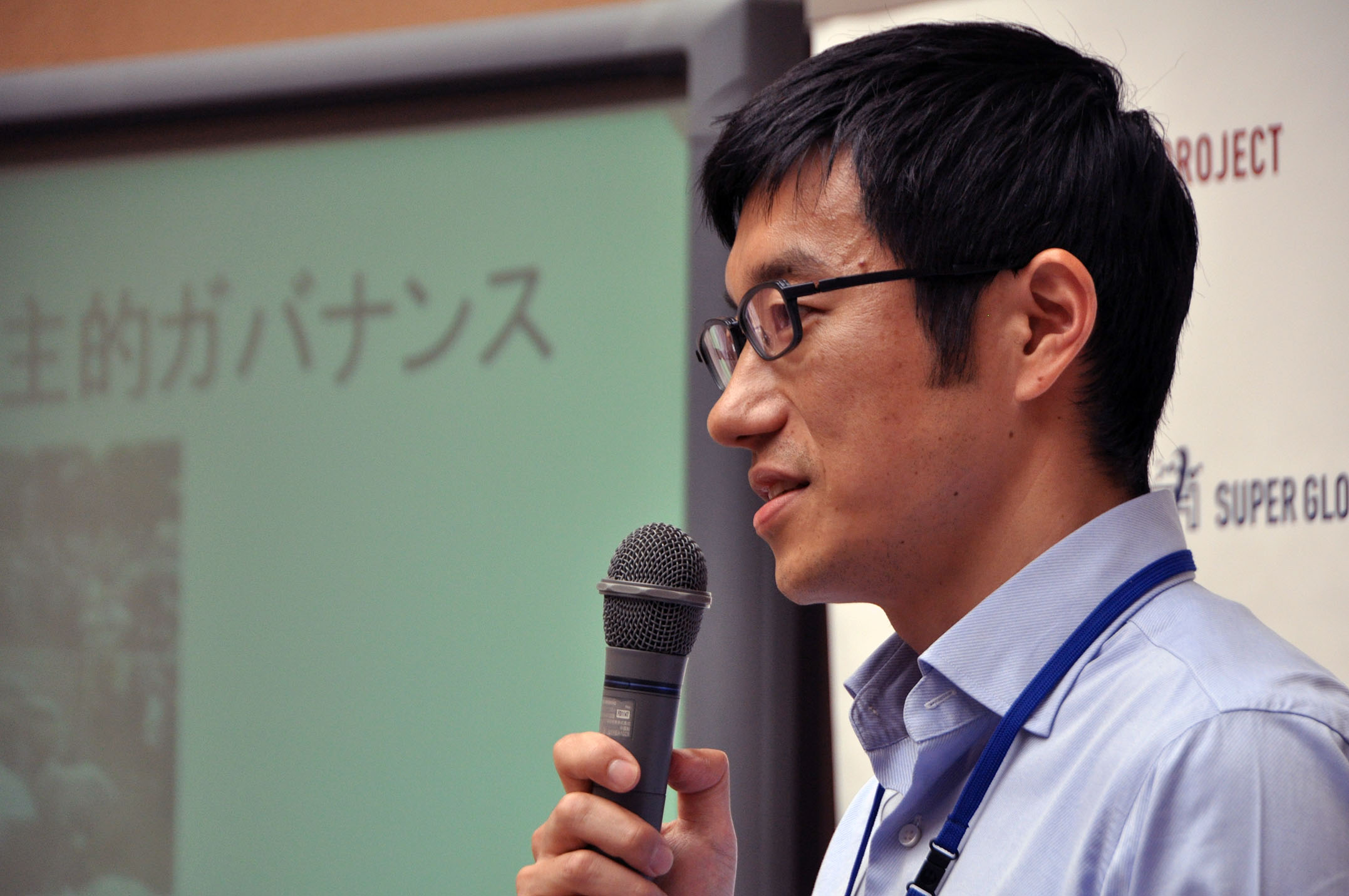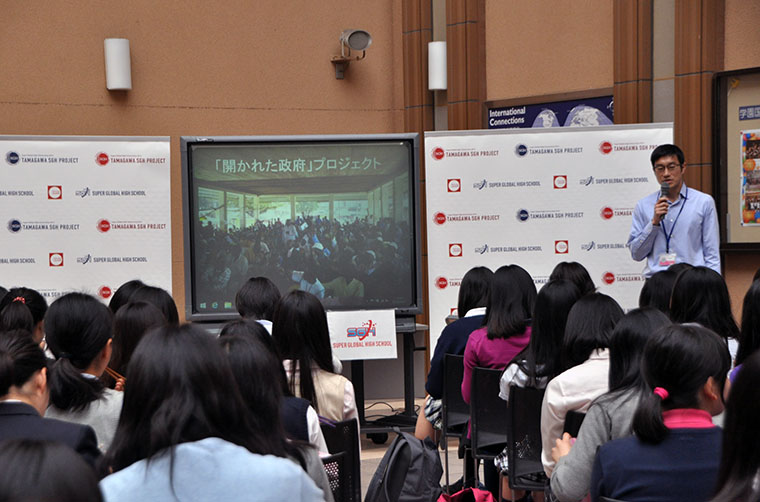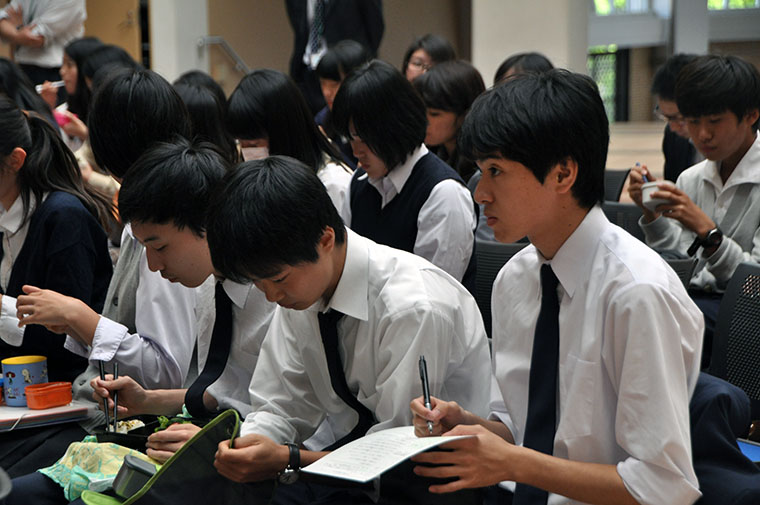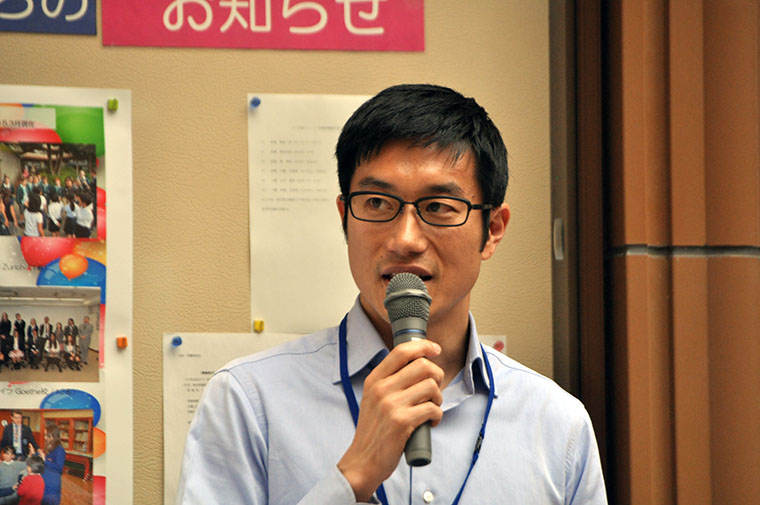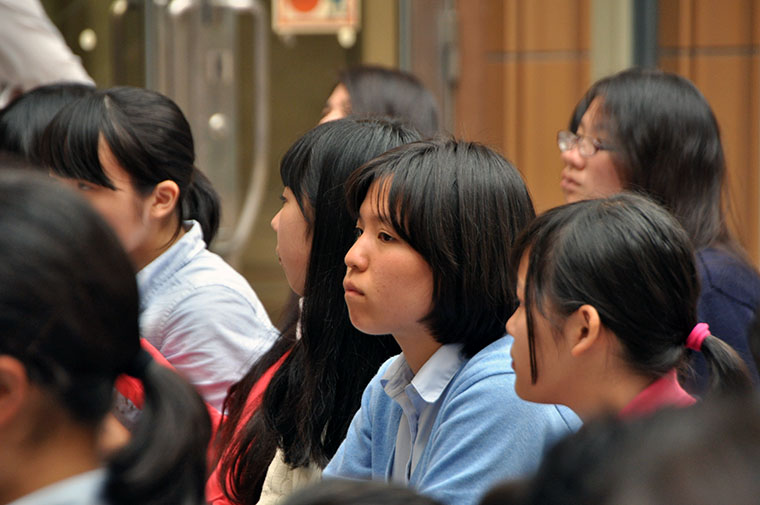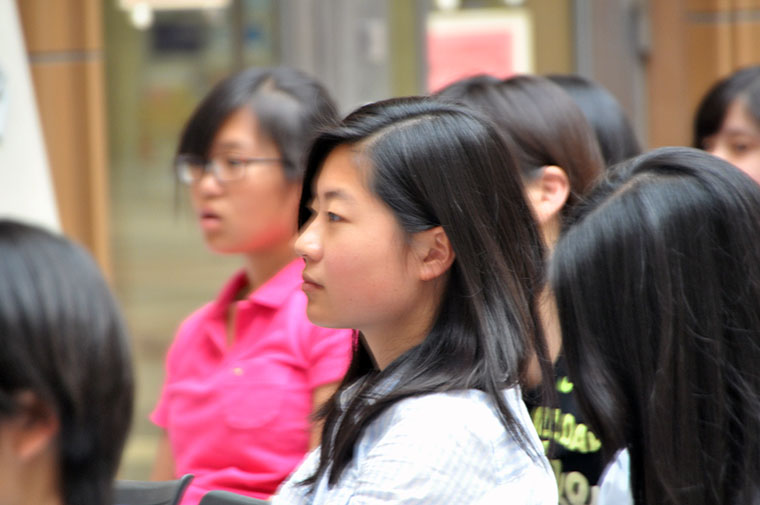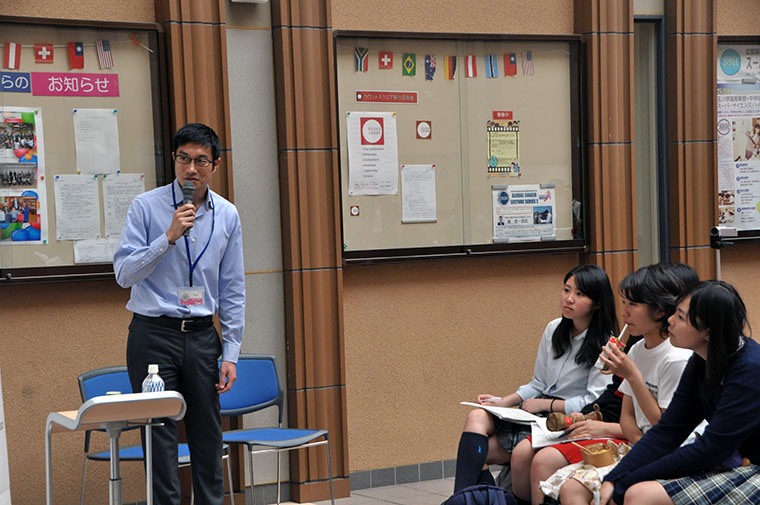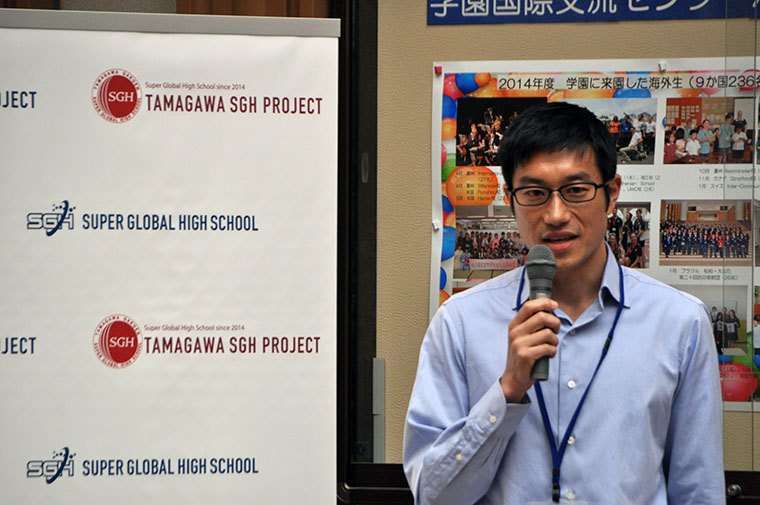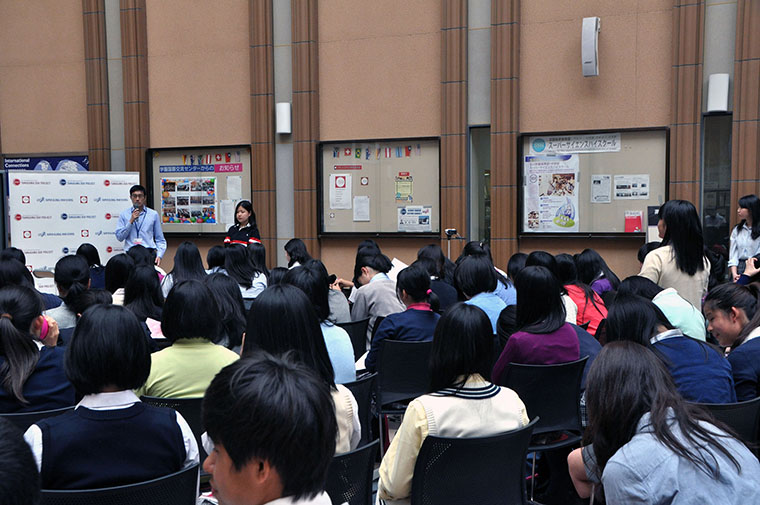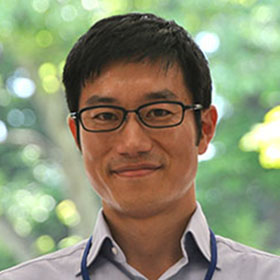The second lecture of the Global Carrier Lecture Series was held in the atrium, which allowed warm spring breezes to blow through. As same as before, over 100 students participated, and the floor was crowded to the extent that additional chairs were hastily arranged.
The theme was “poverty,” and the lecturer was Yuichiro Sakai, who is a program advisor at the Secretariat of the International Peace Cooperation Headquarters, Cabinet Office. He talked about his experiences in Sierra Leone and Afghanistan in a presentation entitled”Experience from Peacebuilding Work towards Poverty Eradication.”
Mr. Sakai started to talk about “how the international community is addressing the problems of poverty.” He enthusiastically explained about a common international goal called the ‘Millennium Development Goals.’ It includes antipoverty measures, and each country has been addressing it in various ways. As a result, the rate of poverty has been reduced, but in fact, there are still a lot of problems.”
After seeing a graph on the current state of poverty in the world, the students learned that it was a more serious problem than they had expected, and they carefully listened to Mr. Sakai’s speech.
The first place where Mr. Sakai worked was Sierra Leone in Africa, and he was engaged in the “Open Government Initiative” project there.
This project promoted the government to actively address citizens’ needs, and Mr. Sakai showed specific cases with plenty of pictures. The pictures showed scenes of many citizens who were gathering and directly talking to politicians. It was a clear look at the current state of a faraway country.
The next country where Mr. Sakai worked was Afghanistan. He was engaged in the “Afghanistan Peace and Reintegration Program,” which
provided support including job training and literacy education to former anti-government soldiers. Program activities helped create jobs and led to redevelopment of towns.
However, Mr. Sakai said, “Still, peace hasn’t come. Development doesn’t proceed well enough either.”
Behind these problems was the fact that economic assistance was not always the only answer to achieve peace and assist development in disputed countries that had serious problems with poverty. “Poverty is not the only cause of disputes. Abuses of political power are also a major factor, which prevents people from participating in politics,” he said.
Mr. Sakai continued to work for a long time to eliminate poverty, and his words of his real experiences carried a lot of weight. Everyone was very inspired by his talk.
During the question and answer time, detailed questions were raised: Some examples being “Would you tell us in detail about the United Nations Development program(UNDP)?” “Did those who are engaged in such activities study politics in university like you?”
Through the lecture, in looking at the problems of poverty and peacebuilding in the world, and learning from one who was actually working on them, the students were able to continue on a path toward their future as leaders.




